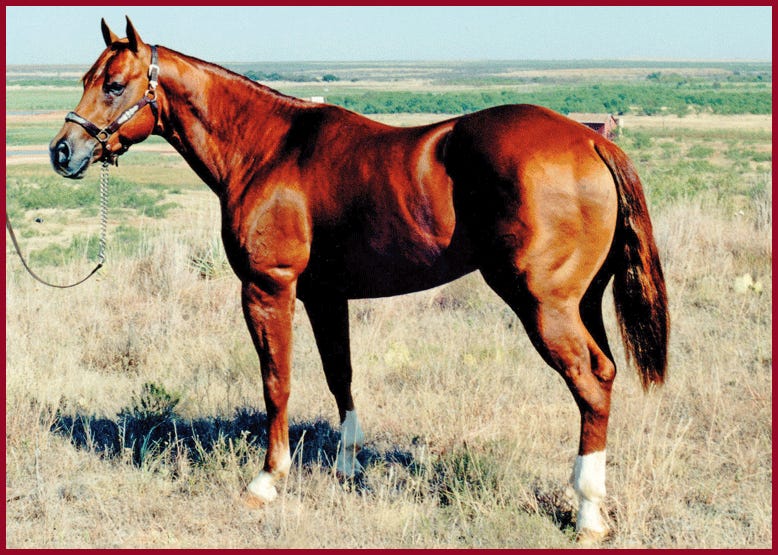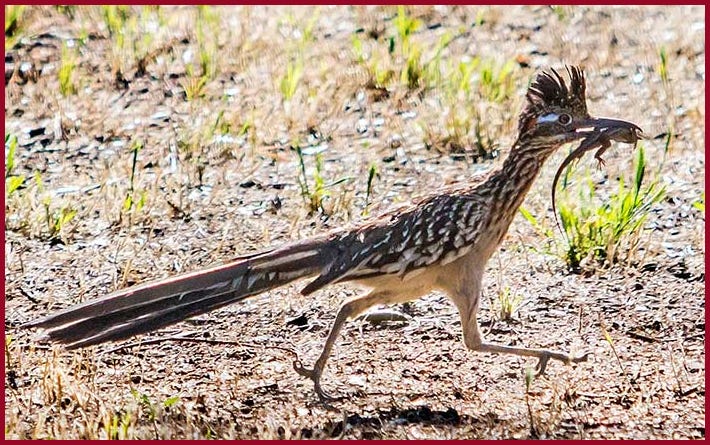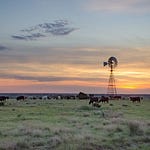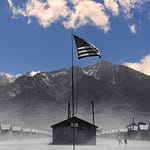LaDawn Tate expertly slid the blade of a straight razor through layers of white lather, removing gray whiskers and making furrows on the ruddy complexion of her father’s face. When he was clean-shaven, she wiped away the remaining lather with a warm towel and robotically reached for a hand mirror that she held in front of his face to the begrudging count of one-two. His gaze remained fixed, giving no indication that the reflection in the mirror—the dead eyes, the permanently-set scowl—belonged to anyone he recognized. She set the mirror on a table alongside the razor and towel, stepped behind her father and spun the chair that held his motionless body. She pushed it out the door of his bedroom and into the hallway that she would follow the long distance to the front of the house.
A floor-length mirror, gilt-framed, stood against the wall opposite the doorway of the bedroom. It’s where LaDawn’s mother used to stop to take careful stock of herself before leaving her sanctuary. It’s where she examined herself. Only when she was satisfied with her image—satisfied that she was perfectly dressed, lips red, every dark hair in place—did she fix a certain smile on her face. Not even so much a smile as a vaguely pleasant set to her mouth that kept her insulated from intimacy and made even the slightest scrutiny unthinkable.
As LaDawn passed the mirror, she didn’t so much as glance at her own reflection. Her enigmatic expression didn’t require proofing. She was bound to no one. How she looked, what she did was to please herself. Every move she made was considered. So when she spun the chair around fast as she steered the helpless figure of her father—that was deliberate. The painfully slow steps that followed as she inched her way down the hallway—that was deliberate. Stopping to open the set of French doors leading into the living room—one at a time with a drawn-out, aching, silent, rote set of movements—was deliberate, too. Inside the cavernous living room, she stopped to make slight, unnecessary adjustments to the many objets d’art on the way to the ultimate destination, the dining room, where she abruptly handed off her charge. Spinning the chair into place at the head of a polished, mahogany table, LaDawn turned her burden over to the duty-bound hands of another.
Soledad Nuñez hurried in from the kitchen, the aroma of chilis, tomatoes and warm tortillas rising from a plate of huevos rancheros she set in front of Vernon Tate. A heavy set of drapes covered floor-to-ceiling windows, blocking out the light just as heavy resentment blocked any joy from Soledad Nuñez’s heart. She hid her contempt and chirped to him as she opened the drapes, “Mira, Senor Tate. Look what a beautiful day we have, no?” And sunlight came streaming through the thick-paned windows, bringing heat into the cold room. But not warmth. Nothing could bring warmth into this house.
Vernon shifted his eyes for the first time and focused on a pumpjack situated oddly close to the house. The behemoth rocked loudly and incessantly night and day, pumping crude oil out of the ground and money into the fat bank accounts and well-filled coffers of the Tate fortune.
Soledad reached for a silver coffeepot and, by the time the dark stream of coffee had filled the china cup, LaDawn had disappeared through the front door of the house. It would be evening before she returned, long after Soledad had spent her day catering to her employer’s every need and seeing to it that he was in bed for the night. It was the routine that had been repeated daily for the last twenty years.
LaDawn trod over the front lawn, ignoring stepping stones that had been placed there long ago. As a child, she had obediently jumped from one to the next, careful never to let her small feet trample a single blade of the thick, green grass. She strode past the rose garden her mother had painstakingly planted years before. Before selecting a new rose variety, Eloise Tate studied it thoroughly. Then she cultivated, tended, pruned, fed and nurtured her prized plants with an obsessive care and attention she never gave to her child.
When LaDawn was little, as a way to be close to her mother, she made it her practice to follow Eloise when she tended the roses, sticking close to her side, absorbing every bit of redundant minutia Eloise recited about the roses. By the time she was in elementary school, LaDawn could identify every variety in the garden, recite the provenances, recount the stories of their namesakes, describe the roles the revered plants had played throughout history. She conducted tours for imaginary friends, winding her way through the precise rows of plants, reciting a monotonous spiel similar to the one she heard with dulling repetition from her mother. It filled some of the hours of her lonely days. “Here we have the Queen Elizabeth,” she would tell her pretend audience, as officiously as a seven-year-old could, “a pink grandiflora developed in the U.S. in 1954. And here’s another pink variety, developed in 1943 during the war. It’s named after America’s First Lady of Radio, Mary Margaret McBride. Here are two yellow varieties—one named for the famed journalist Lowell Thomas, and this delicate yellow rose is the Madame Chiang Kai-shek. Its aroma is strong like the lady herself. The beauty here with the deep red, velvety blooms is the Chrysler Imperial. It may be tempting to pluck it, but be awfully careful of its many thorns. And now,” the little girl would say, pausing dramatically before presenting her mother’s most prized variety, “behold the almost thornless beauty here. Developed in 1952 from the Peace Rose, it’s a favorite of Elizabeth Taylor because its true lavender blooms match her eyes. This is the Sterling Silver rose!” Eventually, boredom or Soledad’s call to supper would bring her tour to an end.
Ironically, the lonely, imaginative child did not realize she and the roses shared common traits—beauty and the stubborn strength it took to survive their harsh environments.
There had been one day, though—if she had been old enough, had enough foresight and perspective to see it—she might have made the comparison. One lonely afternoon when she had wandered into her mother’s garden. A breeze caught the sweet, distinctive fragrance of the roses and filled the air with perfume. LaDawn felt almost dizzy.
It was growing close to dusk. Eloise Tate was inside and already well into the crystal decanter of liquor she kept in her room. The particular fragrance of her mother’s Sterling Silver roses drew LaDawn to the bushes covered in lavender splendor. A hatred welled up in her. She snapped off one of the blooms—the most perfect one, the one her mother had rhapsodized over earlier that afternoon—and, holding it tightly, ran off with it to the barn.
LaDawn sat down on the layer of hay that lined a horse stall and leaned against the cinderblock wall. Twister, her big sorrel gelding, was eating hay. The rhythmic sound of his chewing was hypnotic. He eyed her with his huge horse eyes and sent a waft of warm air from his nostrils toward her face. She looked down at the rose she held between her fingers. She envied it. She admired it and despised it. She held it captive. And she intended to destroy it. She began to describe it aloud to the unconcerned horse, and, as he picked up big mouthfuls of hay with his velvety soft mouth, continued his contented, rhythmic chewing, she painstakingly plucked each petal from the whole. They clung stubbornly, but she pulled at their foundation until the deceivingly fragile petals gave way to her small, determined fingers. She examined each one, put them to her nose, inhaled the aroma. She tasted them, caressed them between her fingers, then let them fall onto the floor of the stall, where she crushed and ground them into lavender smudges with the heel of her shoe. A sense of satisfaction washed over the little girl, and she was lost in it.
It was the unexpected sound of Soledad’s voice, loud and urgent, that startled her back to herself. She bolted out of the barn and back to the big house. She raced through the kitchen entrance and saw, to her horror, her mother standing in the middle of the room, her carefully managed lips curled in rage. How could she have known what LaDawn had done? Did she know? LaDawn knew she knew—somehow sensed that her precious rose had been plucked, abused, destroyed. Soledad looked at the little girl and subtly cocked her head toward the dining room and away. LaDawn took off running all the way to her bedroom. And even at 6:00 p.m., she didn’t dare leave her room when she smelled Soledad’s roast beef.
It was earlier than normal when she heard the heavy door to her mother’s room close. She could hear Soledad getting her mother to bed. Then she heard her father spew a familiar assault. “You’re a drunk, Eloise. Getting old before your time. I don’t know why I ever married you.”
It was that night—the night of the rose, the night of her mother’s rage and drunkenness, the night she’d gone to bed lonely and hungry—it was that night her father came into her room for the first time. She was seven.
As LaDawn made her exit from the house that morning so many years later, she intended to make this particular day, her 35th birthday, special by not changing one single thing about her daily routine. She took the path lined with pecan trees that led to the barn and corral. Another big sorrel gelding stood in Twister’s place. He pumped his head and nickered when he saw her. His big eyes followed her until she reached the corral. “Ven a mi, mi hermoso caballo,” she said, stretching out her hand and offering him a cube of sugar. She climbed up and over the rails and jumped into the soft dirt, landing next to him. She took his head in her arms and began a long conversation with the only living thing on earth she loved. “Tú solo tu,” she whispered into his ear.
Hector Nuñez was struggling to lift a bale of hay. It was more than a physical struggle. It was a mental struggle to do the work he’d done his whole life. Accepting limitations was not in his makeup. He dropped the bale into the bed of his pickup, sending dust and straw into the air. He stopped to take shallow breaths, trying to replenish lungs that, according to those goddamned doctors, were failing him. Goddamned doctors. He straightened his back and blamed it for failing him, too. When he could no longer hold in a coughing attack, he ducked behind the truck, not wanting Soledad to see, watching him as she did. Always watching him from the windows of the big house, then nagging and fretting and begging him to slow down. He heard the gravel crunch under LaDawn’s boots and called cheerfully, “Buenos dias. You ready for your ride, Miss Dawn?” “Morning, Hector,” she said, as he apologized for not having her horse saddled already. “I’m plumb stove up this mornin’, Miss Dawn.”
He glanced sideways at her as he saddled the big sorrel horse. LaDawn could see he had something he wanted to tell her. She dreaded having to exert herself in polite conversation. “So, Hector,” she sighed. “What’s new?” Given the opening, his eyes lit up as he reported the news that his son Esteban would soon be coming home. “For good, Miss Dawn!” he enthused. Steve Nuñez was coming home to Dixon after all the years he’d been gone, to live there again on the Tate property with Hector and Soledad in the small house they’d occupied for the forty years they had worked for the Tates. LaDawn’s expression betrayed no emotion. “He says he wants to come home, help out around here,” Hector scoffed as he tightened the cinch on the saddle and took three or four real shallow breaths trying to fill his lungs. Hector went on, making a case against needing any help. LaDawn mounted the horse and left. Hector stood with dust encircling him, coughing and smiling and waving her off.
LaDawn gently prodded Paz with her heels, and he broke into a gallop. Closing her eyes, she let the morning air wash her clean and free. She imagined breaking through the painted backdrop of a movie into a live world that belonged to her. Her senses came alive. The fragrance of sandhill sage filled the air. Its feathery, silver-blue foliage swayed in the wind and mixed with the colors of the sky and clouds, the blue and white, the soft brown of the soil. Paz’s hooves thudded in a rhythm that synched with the beating of her heart. When they reached a rise, she turned him loose to graze and laid a blanket on the ground near a granite marker that bore the name Twister, there where it was peaceful and calm and there where the other inhabitants of the prairie would keep her company for a while.
A family of bobwhite quail that roosted in a stand of scrubby shinnery oaks pecked around its perimeter for food, the babies scampering under the watchful mother at the least provocation. There was the ol’ coyote that lazed around most mornings, giving her a wary eye even though they were anything but strangers to each other. X-shaped tracks left in the dirt told her that a pair of friendly, curious roadrunners she called “Him” and “Her” were close by. The nosey pair sauntered around, cocked their heads at her, waiting to see what she was about, then chased down scorpions, lizards or the occasional snake that would take them both to conquer, one at the head and one at the tail.
LaDawn spent these early morning hours stretched out on a Mexican blanket drinking coffee, making sketches, reading and listening to the news and music from the local radio station, KBEA, on an unreliable old transistor radio. When the sun began to bake or the wind kicked up, she headed back to the barn where she spent the rest of her day in a room she had all to herself. When Soledad brought lunch to the barn, LaDawn and Hector would sometimes sit together, talk horse and the weather before he got on with his work and she got on with hers. Her work was making delicate watercolor paintings from her sketches. Painting calmed her mind and soul like riding did. But on the morning Hector told her his news about his son Esteban coming home, nothing could calm either her mind or her soul.
Esteban—Steve Nuñez—her only childhood friend—had invaded her thoughts the whole morning long. Memories came—unwelcomed—of years before, of yellow school bus rides into town and back home, telling stories of their schoolday, playground games. Anticipating Soledad’s pot of beans that would be on the stove. Watching her mash spoonfuls of lard into the creamy, soft beans, then handing them warm soft, white tortillas to wrap around big mounds of the delicious beans. Making bundles they could eat on the way to play hide-and-seek. Checking on anthills. Settling down in a horse stall in the barn. Turning attention to homework assignments. Then, when darkness approached, saying goodbye until another morning began and conversations picked up mid-sentence, mid-word. Images of Esteban. Steve Nuñez, the golden boy. The athlete and scholar, the exceptional boy, the most likely to succeed. His radiant face. The ready smile of her one friend. It was enough to choke her, the memory of it all. She wanted it to go away, disappear like the dust devils they chased that rose up and away, dissipating into nothing.
LaDawn brusquely turned Paz over to Hector and stumbled to her car. She tore away fast, past the pecan trees, blurring the straight lines they formed from the barn to the house and out to the highway, filling the air with roiling dust—the sound of gravel grinding, gears whining, radio blaring—and fishtailed onto the highway and toward town.
Pinky Dooley was standing behind the bar, one skinny leg hiked up on the top rung of a barstool talking to Damon Scruggs about boxing and “The Jackie Gleason Show.” He never gave a sign that he was aware his new hire, Jaedell McCray, was ducking under and around him to stock beer in the cooler behind him. It wasn’t like him to be disrespectful to anyone, especially a woman, but he had no regard for this woman, Jaedell McCray. He was sorry he hadn’t found out more about her before he hired her. He felt obliged to keep her on now, but it was more than he could do to look at her. He’d learned she abandoned her four small children, left them with an abusive, alcoholic father and moved away, here to Dixon. When she’d come to him looking for a job, she left out that part and played on his sympathy with a hard-luck story, and it worked. Pinky’s own mother had raised him and his three brothers by herself working three jobs. Ironing, cleaning, cooking—anything she could do. Never would anything have caused her to abandon him or his brothers. "Well, maybe I’ll fire her sorry ass tomorrow,” he thought.
Pinky Dooley was from Boston. No one knew how he ended up in Dixon. He might have heard some homesick sailor laying in a bunk in the Pacific Theater of war, where nothing was familiar or comforting, talking about how he missed his “home on the range.” Or Pinky might’ve just thrown a dart at a map. He was a Catholic Irish kid where being Irish was written on your face, inscribed on you like a Celtic Rosetta Stone. If you broke away, the church pulled you back into the fold with every family event, marriage, birth, death, baptism. Unlike here, out west where Irish roots were replaced by homesteader roots that had taken hold in the hard, dry ground by sheer will. Sentimental yearnings for the old sod were long gone. But whatever it was that brought him to Dixon, it was home to him now. He bought the Sundown Lounge on South Main Street in 1947, right after the war. Pinky called it a cocktail lounge, and it benefited from the distinction. It was the best bar in town, and Pinky Dooley was the reason. If a good bartender is like a good therapist, then Pinky was that. “Why, Ol’ Pinky’d give you the shirt off his back,” old-timers said. “Yeah, I think an awful lot of Ol’ Pinky.” The Sundown Lounge was more than a business to Pinky, but he did make it his business to be a good friend. And more importantly, to keep the secrets his patrons regularly shared with him. Pinky was discreet, and, above all else, he was loyal.
LaDawn pushed open the door, and a shaft of bright sunlight streamed into the dark interior of the Sundown Lounge. She headed to the bar. Before her bottom hit the barstool, Pinky had plucked a napkin from a stack and set a glass on the bar. LaDawn flicked out the cocktail straw, took a long drink and slid dollar bills across the bar. Pinky opened the cash register and took out a roll of quarters. Without even looking her way, Pinky pushed the roll in the direction of Jaedell, the sweaty new hire, along with brusque instructions to keep the jukebox fed for Miss Tate. Then he turned his attention toward LaDawn. The new hire dropped the crate and took up the new task of tending the jukebox. She had instincts if not intelligence and switched her priorities accordingly. She scurried in the dark bar to the jukebox. She was wearing worn-out shoes and tripped on a loose sole. On her miserable way back to the bar, she knocked over a chair. Pinky moved his eyes slightly in her direction, causing her to jump out of his line of sight. Poking her head up and down behind the bar stocking beer, she caught glimpses of LaDawn sitting there, lost in some unknown world. A simplistic question went through her head. “What’s a rich woman like her doing here by herself?” The question flew out of her mind when she raised up and banged her head on the underside of the bar. Her over-teased, bleached hair cushioned the blow.
Leaning over the bar, Pinky’s eyes softened. “How you doing, LaDawn?” She answered by taking another long drink, closing her eyes and swaying along gently to Nat King Cole singing, “Are you warm? Are you real, Mona Lisa? Or just a cold and lonely, lovely work of art?” Pinky knew when to leave LaDawn alone with herself. And he knew when she came in that afternoon that, by closing time, she’d be in no shape—he’d drive her home and deposit her into Soledad’s care. Soledad would shake her head in sadness as she repeated the same words she’d spoken to LaDawn’s mother when she helped her to bed. “There now, Miss Dawn. Hold on to me before you fall.”
The next morning, LaDawn was in one of her black moods. Even her father’s dead eyes took notice and widened when the straight razor traced the length of his cheek and down his neck. She and Paz stayed out for hours that day. Hector was about to send one of the hands to look for her just before she came in. “Oh, Miss Dawn—” he started before she cut him off. “Take him,” she said, handing Hector Paz’s reins, “and give him extra oats.”
From the front window of the small Nuñez house, Steve Nuñez watched LaDawn. She knew. She could feel her old friend’s gaze. She headed toward the big house. Within the hour, she was at the Sundown Lounge again. Pinky eyed LaDawn and ventured offhandedly, “Steve dropped in to see me on his way out to the house.” She lit a cigarette, and smoke formed a curtain around her face. Pinky went on, “Said he was staying. I guess Hector’s in pretty bad shape these days and they need him around.”
Steve Nuñez had been away from Dixon for twenty years. Since before the night of Vernon Tate’s stroke, the night of LaDawn’s fifteenth birthday. Steve Nuñez, LaDawn’s only real friend, had left Dixon. Was gone by the time Eloise Tate put a pistol in her mouth and pulled the trigger.
Eloise Tate had found her almost 15-year-old daughter bleeding from a miscarriage, and she knew. She’d always known. The guilt belonged to Eloise as much as it belonged to Vernon. But for Eloise, it was easier to shut it out. Easier to cast blame at the young son of Hector and Soledad Nuñez than it was to blame her own husband, LaDawn’s father. Easier even to weave lies, set snares, blame Steve Nuñez, the sweet, blameless friend of LaDawn. It was easier for her to watch as Hector and Soledad agreed to send their son away to keep her from spreading the lie about him, the lie that—even though it didn’t bear scrutiny—carried the weight of fear for their son’s future. Eloise preferred the easier way—never had the stomach to face reality. Ending her life was easier, too. And so that’s what she did. She didn’t even know at the time she was giving herself yet another easy out. She wouldn’t have to explain why, just weeks later, her husband’s body would lie next to their daughter’s bed, blood pooling around him, moonlight glinting off the blade of a straight razor. Saved herself hearing the screams that echoed across the night and were answered by Hector and Soledad Nuñez.
LaDawn had waited a long time for protection that never came. Finally, she’d had enough. On that night in the darkness of her room, when her door opened and she saw her father’s silhouette, she reached under her bed for the horseshoe she’d stowed. He began to come close. Close enough she could feel his sickening breath on her. That’s when she brought the piece of iron down on his head. His weight fell across her, and with one heave, she pushed his unconscious body onto the floor. In a blinding moment, the rage and hatred and betrayal she’d kept bound up came loose. What she did in her blind fury is what she’d seen done routinely by the cowboys on the ranch to the cows and horses, making them steers and geldings. Vernon Tate survived what LaDawn did to him—just—but suffered a massive stroke as a result of blood loss. Hector Nuñez, fearing to wait long enough for an ambulance to arrive, drove him at top speed to the hospital, believing the man lying on the seat next to him would surely die from his unspeakable injury.
Vernon Tate didn’t die. He lived on and on, sitting mutely in his chair, registering nothing except the imposing iron pumpjack sucking oil from beneath the surface the earth, sucking and sucking the black crude oil while he sat inert in his chair, sucking up the efforts people around him made on his behalf.
Away from the poison that pooled around the Tate house, Steve Nuñez had flourished. In what was meant to be exile, Steve did good. And when he returned, he left behind a life he’d worked hard to establish. Lessons of loyalty and devotion learned early stick.
Pinky Dooley looked straight at Steve sitting at the bar of the Sundown Lounge where he’d stopped to say hello and asked him bluntly, “Why come back, son? There’s nothing for you here anymore.” Over the years, Pinky Dooley had heard enough from LaDawn’s inebriated ramblings to put the story together. Pinky’s answer to the question Steve asked him, “How is LaDawn doing?” was a shake of the head.
LaDawn had Paz, the only thing she loved. And Pinky gave her what he could, a safe place when she wanted it. A place where she could close her eyes, listen to the jukebox play and play and play.




















